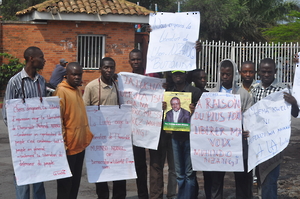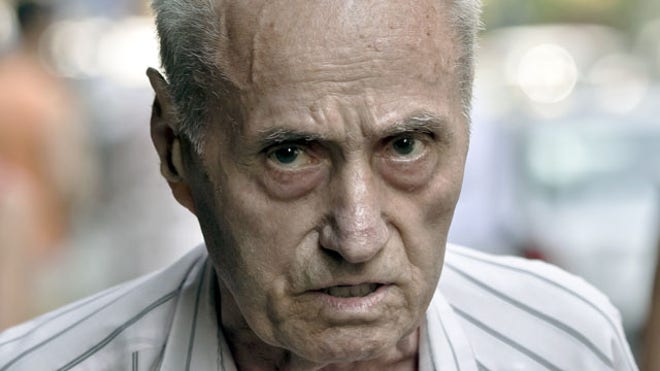By: Danielle L. Gwozdz
Impunity Watch News Reporter, Africa
KINSHASA, Democratic Republic of Congo – A member of parliament, Muhindo Nzangi, was sentenced to 3-years in prison over comments he made on a radio program. Nzangi’s comments revolved around a political debate about the M23 rebel group.

Two days after speaking on the radio program, Nzangi was tried, convicted, and sentenced for endangering internal state security, revealing defense secrets, and insulting the president.
Because Nzangi was allegedly “caught in the act,” Nzangi was not protected by parliamentary immunity. His trial began immediately when he was flown to the capital, Kinshasa, and was denied the right to have adequate time to prepare a defense.
“A member of parliament was arrested, summarily tried and sent off to prison solely for expressing his views,” said Ida Sawyer, senior Africa researcher at Human Rights Watch. “This sadly is just the latest attempt by government officials to use the courts to silence dissent.”
Nzangi participated in a 2 ½ hour debate on Radio Kivu 1. They discussed the crisis concerning the M23, a Rwanda-backed rebel group active in North Kivu, and also discussed the role of civil society.
Nzangi stated that the Congolese people should call on the government to end talks with M23 rebels in Uganda and continue military operations against them. Further, he urged people to direct their pressure toward Congolese President Joseph Kabila as well as United Nations peacekeeping mission in Congo, by holding “peaceful actions,” such as marches and sit-ins.
In addition, Nzangi acknowledged the risk of demonstrations turning violent, but called for advanced measures to be taken to prevent and control risk.
Once the radio program ended, Nzangi told Human Rights Watch that someone called him and warned him that “The president is very upset with you. Flee if you can.”
One week after Nzangi was tried, convicted, and sentenced, police violently disrupted a peaceful sit-in by dozens of Nzangi supporters asking for the release of Nzangi. This sit-in occurred outside the North Kivu governor’s office in Goma.
The police brutally beat several protestors, arrested 4 protestors, and threatened protestors with rebellion charges. However, the 5 arrested protestors were released the next day.
Many believe that Nzangi’s arrest was politically motivated since Nzangi is a member of the Movement for Social Renewal (MSR), one of the largest political parties in the ruling presidential majority.
Human Rights Watch states that Congolese authorities should drop this questionable case against Nzangi and end the crackdown against his supporters. Further, it states that this prosecution reflects a broader government crackdown on free expression in the country.
Since May 2012, Human Rights Watch has documented 84 cases which politicians, political party activists, journalists, and human rights activists were arrested or threatened by the authorities because of their political views or published opinions.
International law provides that everyone convicted of a crime has a right to appeal their conviction to a higher tribunal.
“If President Kabila is serious about creating open dialogue, a first step should be to let politicians, journalists, activists and others say what they think without risking jail,” Sawyer said. “Everyone who is locked up for their peaceful political views should immediately be released and charges dropped.”
For further information, please visit:
Human Rights Watch – DR Congo: Outspoken Lawmaker Gets 3-Year Sentence – 29 August 2013
Africa Press Review – Democratic Republic of Congo – Outspoken lawmaker gets 3-year sentence in DRC – 30 August 2013
Ifex – Outspoken lawmaker gets 3-year sentence in DRC -30 August 2013
World News Inc. – DR Congo: Outspoken Lawmaker Gets 3-Year Sentence (HRW) – 29 August 2013
All Africa – Congo-Kinshasa: Outspoken Lawmaker Gets 3-Year Sentence – Freedom of Expression, Peaceful Assembly Under Attack – 29 August 2013
refworld – Democratic Republic of Congo: Outspoken Lawmaker Gets 3-Year Sentence – 29 August 2013
topix – DR Congo: Outspoken Lawmaker Gets 3-Year Sentence – 29 August 2013


